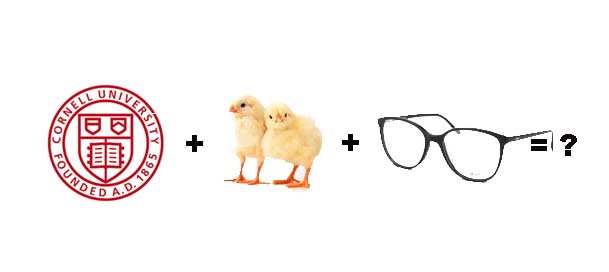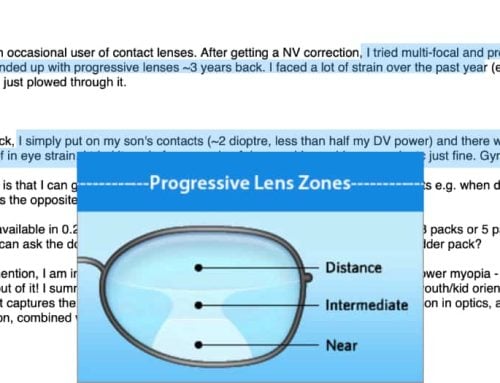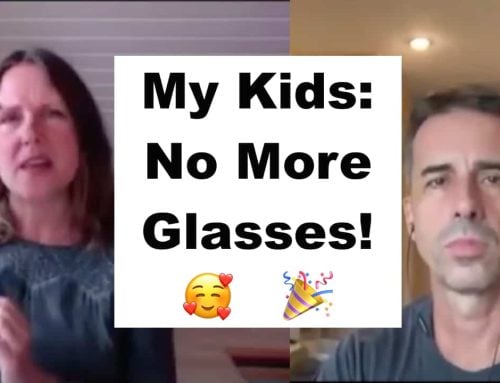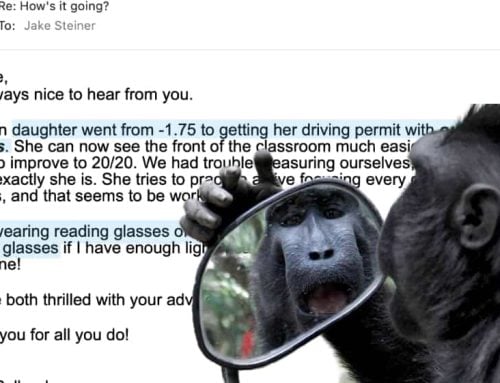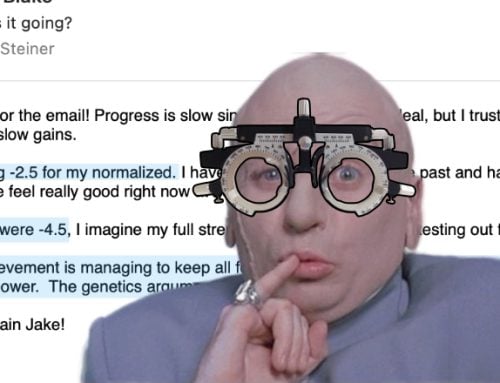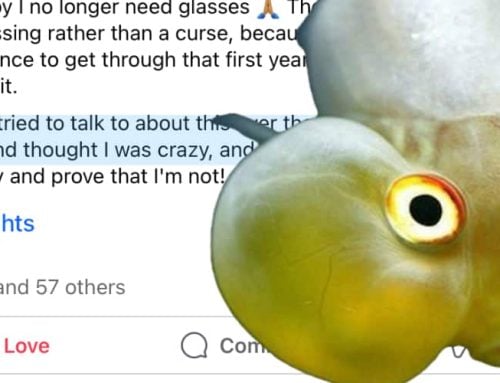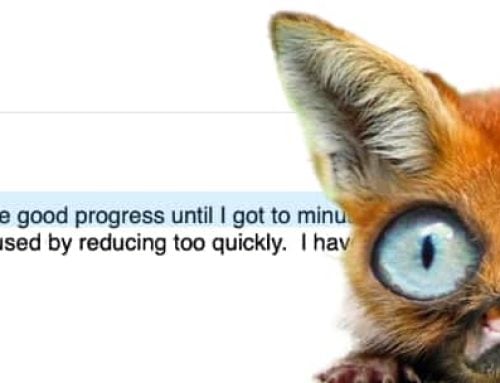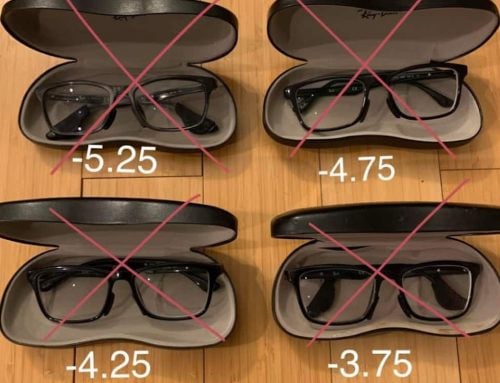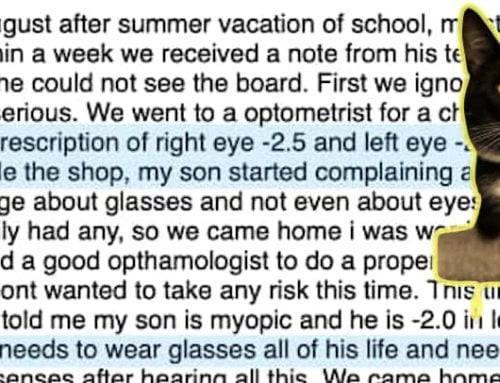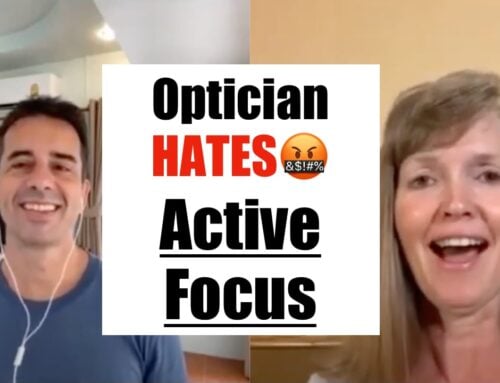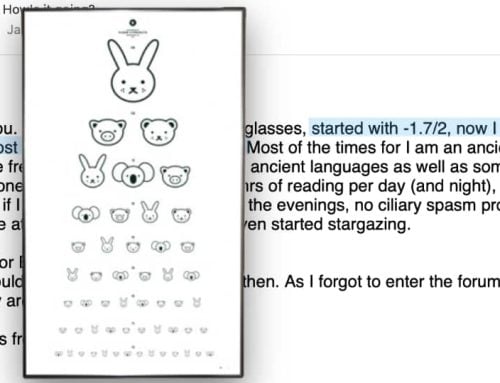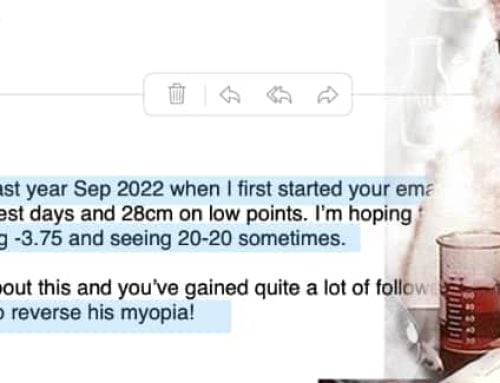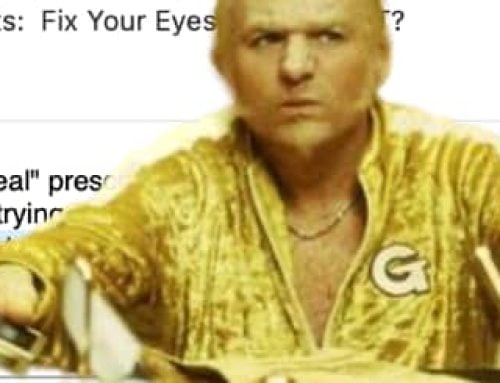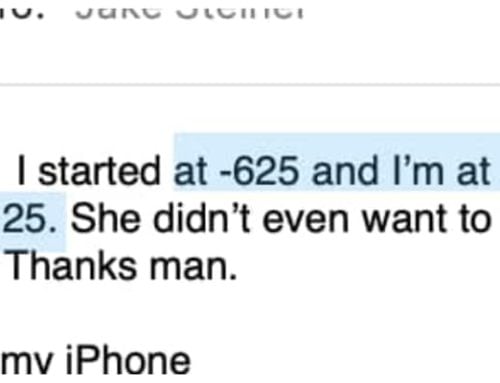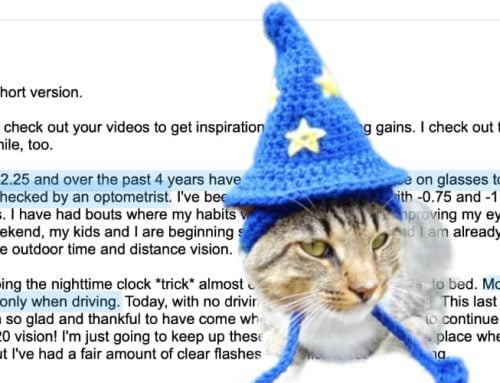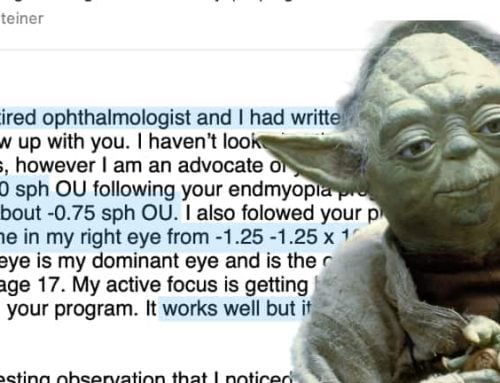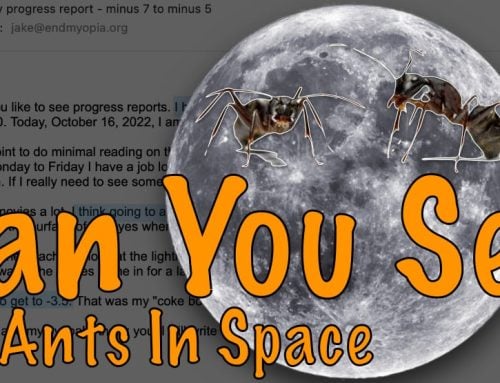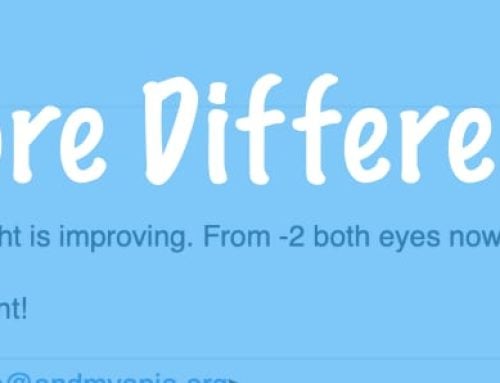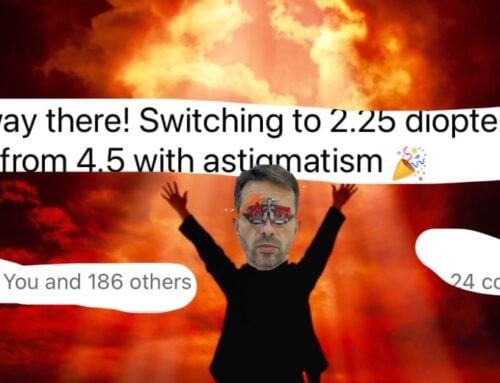Sara writes in the forum:
![]() My new normalized glasses arrived! I wanted to see what a 0.5 diopter drop would be like, so I ordered them with OS -4 and OD -4.25.
My new normalized glasses arrived! I wanted to see what a 0.5 diopter drop would be like, so I ordered them with OS -4 and OD -4.25.
I put them on this evening when I came home, and I loved how I saw. For the most part everything is clear, so my brain registers it as “normal”, and the world looks bigger, which is great. I get a light blur starting at 8 to 10 feet (this is at night time – haven’t tried it in the morning yet), but I can blink to bring letters into focus in the slightly blurred area area (e.g. getting my microwave clock letters to be sharper). When looking at the Snellen from 20 feet, there is a blur on it, but I can blink and clear lines, enabling me to read the 20/40 and 20/30.
Maybe I should have written in the title, that your prescription reduction might make my day.
My favorite? The world looks bigger.
Behind the scenes, I get a lot of arrogant commentary from the establishment, who would rather see this whole myopia rehab topic not exist. It gets tiring every so often, but then it also adds to my motivation – somebody has to bring you an alternative to the status quo of “all that exists is glasses, contacts, surgery”.
Just browsing the forum, and reading of you becoming actively involved with your eyesight, makes me profoundly happy.
And of course it is all about improving your eyesight. The first step to that though, is developing a curiosity about your eyesight. Measuring the centimeter. Printing out a Snellen chart. Starting to get a feel for eye strain. Not taking your eyesight for granted, and connecting with your vision consciously, is such an important experience.
Sara’s full post is here.
Entirely unrelated, a story about birds:
![]() The eyes of growing chicks adjust to correct for myopia (eye relatively long for the focal length of its optics) or hyperopia (eye relatively short for the focal length of its optics). Eyes made functionally hyperopic with negative spectacle lenses become myopic and long, whereas eyes made functionally myopic with positive spectacle lenses become hyperopic and short.
The eyes of growing chicks adjust to correct for myopia (eye relatively long for the focal length of its optics) or hyperopia (eye relatively short for the focal length of its optics). Eyes made functionally hyperopic with negative spectacle lenses become myopic and long, whereas eyes made functionally myopic with positive spectacle lenses become hyperopic and short.
This study, from the Visual Neuroscience section from Cambridge University Press. The whole abstract is here.
We talk about birds here sometimes. Monkeys, even humans. It doesn’t matter to most of the optometrists, ophthalmologists, and surgeons, whose eyes the studies are about. These topics just make them anxious, though mostly their tone tends to be dismissive. And how could it not, considering the inconsequential nature of statements like this one:
“Eyes with negative lenses become myopic.”
That’s an interesting observation, is it not? Interesting things come out of the department of Neurobiology and Behavior at Cornell University. Of course this is just birds, we are talking about. This, an entirely unrelated story, just in case you enjoy birds. And maybe, if you enjoy strangely familiar stories about eyes becoming long and myopic, from minus lenses.
Interesting to note, that particular reference is from the 1980s. Not exactly news. Perhaps one day, I will make a timeline for you, of all these types of studies conducted – they continue on to this day, quietly and well ignored.
I hope you enjoyed this story, as well as Sara’s (entirely unrelated) experience with the reduced prescription!

